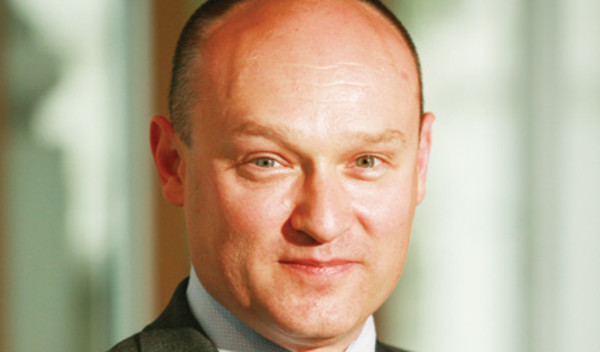

With the UK swaps market now pricing in a 100 per cent chance of interest rates rising by March 2017, and rates already higher in the US, technology stocks are likely be among the losers, according to David Jane, who jointly manages £770m in three funds at Miton.
The swaps market allows investors to hedge interest rate exposure, and according to Michiel De Bruin, head of global rates and money markets at BMO Asset Management, that market is currently expecting a rate rise in the UK by March.
The Bank of England's Monetary Policy Committee said on Thursday (14 September) that UK interest rates could rise sooner than the market expects.
Mr Jane said equity markets, which started pricing in broad based interest rate rises around the world at the end of last year, have now reverted to a position implying that rates are not going to increase from here, a view he considers too extreme.
He said if the base rate rises it will be because economic growth has proved to be consistent.
Such a scenario would boost the share prices of mining and oil companies, and other stocks that do well when the broader economy is doing well, Mr Jane said.
He said technology companies would likely be among the share price losers.
This is likely because the technology giants such as Google have been among the tiny sliver of global listed companies producing consistently high growth, he said.
If the global economy is growing, then Mr Jane said it is likely other companies would start to grow, so investors would have other options than simply the technology giants if they want to buy growth, reducing demand for the shares of the technology giants.
Mr Jane added that many of the technology giants trade at a valuation that implies high earnings being achieved in future decades.
The price the market is happy to put on those future earnings, known in the industry as the discount rate, is high because bond yields are low.
This is the case because if an investor can buy bonds paying a rising income because interest rates are rising, they will pay less for the earnings of companies into the future, as they can simply buy the earnings in a bond.
Nigel Thomas, a veteran investor who runs the £3.3bn Axa Framlington UK Select Opportunities fund, is unconcerned about potential UK interest rate rises.
He said he remembers when mortgage rates in the UK touched 12 per cent, and said interest rates rising from the current record low levels around the world would be unlikely to have a profound impact on stock prices.
Samantha Gleave, who runs the £147m Liontrust European Growth fund, said any impact on equities from tighter monetary policy will be slow and gradual.
Mr Jane added that the stocks traditionally viewed as defensive consumer staples, such as Unilever, would also likely suffer as interest rates rise.
This is because many market participants view the yield from large companies such as Unilever as being almost as safe as that of a bond.
But if bond yields rise, then the current yield being achieved by Unilever will look less attractive, and the share price would under perform, he said.
Terry Smith, who runs the £12bn Fundsmith equity fund, said companies like Unilever sell goods for which there is a constant demand, and so have the capacity to put prices up as inflation moves higher.
Steven Andrew, who runs the £739m M&G Episode Income fund, has long been more optimistic than the market consensus about the UK economy.
He said: "Fundamentally, the UK economy doesn’t look all that different to that seen in the US: an apparently stable expansion delivering the lowest unemployment rates in more than 40 years.
"What is unusual is for the gap between UK and US policy rates, and bond yields, to be so very wide - close to their widest in 20 years.”
Mr Andrew said in such a scenario UK shares exposed to the domestic economy look cheap.
Adrian Lowcock, investment director at Architas, said inflation rising faster than interest rates, means equities are likely to continue to outperform cash.
david.thorpe@ft.com



